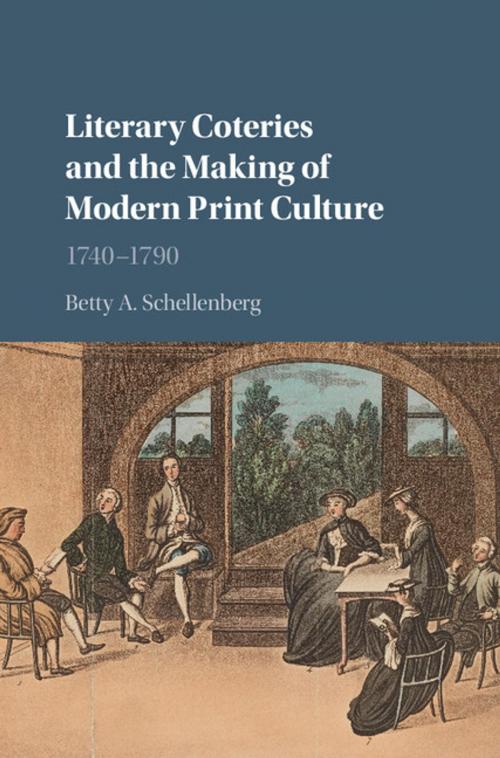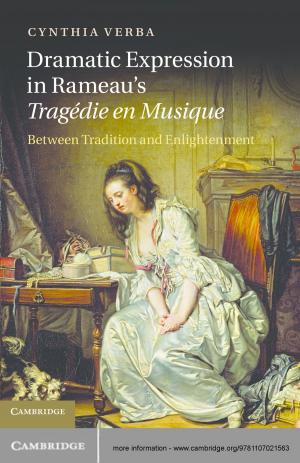Literary Coteries and the Making of Modern Print Culture
1740–1790
Fiction & Literature, Literary Theory & Criticism, British| Author: | Betty A. Schellenberg | ISBN: | 9781316588734 |
| Publisher: | Cambridge University Press | Publication: | June 6, 2016 |
| Imprint: | Cambridge University Press | Language: | English |
| Author: | Betty A. Schellenberg |
| ISBN: | 9781316588734 |
| Publisher: | Cambridge University Press |
| Publication: | June 6, 2016 |
| Imprint: | Cambridge University Press |
| Language: | English |
Literary Coteries and the Making of Modern Print Culture offers the first study of manuscript-producing coteries as an integral element of eighteenth-century Britain's literary culture. As a corrective to literary histories assuming that the dominance of print meant the demise of a vital scribal culture, the book profiles four interrelated and influential coteries, focusing on each group's deployment of traditional scribal practices, on key individuals who served as bridges between networks, and on the aesthetic and cultural work performed by the group. The book also explores points of intersection between coteries and the print trade, whether in the form of individuals who straddled the two cultures; publishing events in which the two media regimes collaborated or came into conflict; literary conventions adapted from manuscript practice to serve the ends of print; or simply poetry hand-copied from magazines. Together, these instances demonstrate how scribal modes shaped modern literary production. This title is also available as Open Access.
Literary Coteries and the Making of Modern Print Culture offers the first study of manuscript-producing coteries as an integral element of eighteenth-century Britain's literary culture. As a corrective to literary histories assuming that the dominance of print meant the demise of a vital scribal culture, the book profiles four interrelated and influential coteries, focusing on each group's deployment of traditional scribal practices, on key individuals who served as bridges between networks, and on the aesthetic and cultural work performed by the group. The book also explores points of intersection between coteries and the print trade, whether in the form of individuals who straddled the two cultures; publishing events in which the two media regimes collaborated or came into conflict; literary conventions adapted from manuscript practice to serve the ends of print; or simply poetry hand-copied from magazines. Together, these instances demonstrate how scribal modes shaped modern literary production. This title is also available as Open Access.















